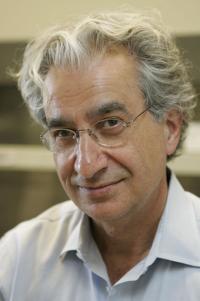
Overview
Academic Appointments
- Professor of Medicine
- Professor of Physiology & Cellular Biophysics
Hospital Affiliations
- NewYork-Presbyterian / Columbia University Irving Medical Center
Gender
- Male
Schedule an Appointment
Phone Appointments
Connect Patient Portal
For existing patients, login to make an appointment, view documentation or contact your care provider.
Location(s)
Credentials & Experience
Education & Training
- University of Baghdad College of Medicine (Iraq)
- Residency: Baltimore City General Hospital - MD
- Fellowship: Johns Hopkins Hospital
Committees, Societies, Councils
- Practitioners Society of New York
- Scientific Advisory Board on Intramural Research, NIDDKD
1992 - 1992 - Interurban Clinical Club
- Research Committee, American Heart Association/NYC Chapter
1991 - 1991 - Fellow, American Association for the Advancement of Science
Board Certifications
- Internal Medicine
- Nephrology
Honors & Awards
- 2005 Stevens Triennial Prize. Columbia University College of P & S.
- 2005 Fellow,American Academy of Arts & Sciences
- 2006 Distinguished Achievement Award University of Iowa, Dept of Medicine
- 2007 Homer W. Smith Award; American Society of Nephrology
- 2008 Ewig Clinical Scholar Award Columbia University, Dept of Medicine
- 2009 The Harvey Lecture;The Harvey Society
- 2010 Princess Liliane of Belgium Award Princess Liliane Foundation
- 2010 Robert W Berliner Award. American Physiological Society, Renal Excellence in Renal Physiology Section
Research
Epithelial Differentiation
During development epithelia cells are generated from non-epithelial stem cells. These epithelia all have tight junction and apical and basal polarity. Mature epithelia however are easy to recognize as being tissue-specific. This implies that a second differentiation signal is needed to specify these terminally differentiated phenotypes. We have discovered a pathway for terminal differentiation of epithelia cells. Starting with a kidney cell line, we found that an extracellular matrix protein, which we termed hensin induces terminal differentiation in epithelial cells. This protein is expressed in most epithelia. Hensin requires to be localized in the matrix to bind to tis receptor. Knockout of hensin caused defects in the terminal differentiation of the earliest embryonic epithelia.
Kidney Development
During nephrogenesis, a set of mesenchyma cells convert to epithelia and then segment to form the nephron. We are studying the processes that generate and determine the segment identity and the number of nephrons.
Stem Cells
We have recently identified that the mature kidney contains stem cells. We are presently isolating these stem cells with a view towards characterizing their transcriptional program.
Research Interests
- Epithelial Cell Biology
- Kidney Development
- Stem Cells
Selected Publications
- Oliver JA, Barasch J, Yang J, Herzlinger D, Al-Awqati Q. (2002 ) Metanephric mesenchyme contains embryonic renal stem cells. Am J Physiol Renal Physiol 283(4):F799-809
- Al-Awqati Q. (2003) Terminal differentiation of intercalated cells: the role of hensin. Annu Rev Physiol :567-83
- Al-Awqati Q, Oliver JA. (2002) Stem cells in the kidney. Kidney Int 61(2):387-95
- Schwartz GJ, Tsuruoka S, Vijayakumar S, Petrovic S, Mian A, Al-Awqati Q. (2002) Acid incubation reverses the polarity of intercalated cell transporters, an effect mediated by hensin. J Clin Invest 109(1):89-99
- Hikita C, Vijayakumar S, Takito J, Erdjument-Bromage H, Tempst P, Al-Awqati Q. (2000) Induction of terminal differentiation in epithelial cells requires polymerization of hensin by galectin 3. J Cell Biol 151(6):1235-46
- Al-Awqati Q. (1999) One hundred years of membrane permeability: does Overton still rule? Nat Cell Biol 1(8):E201-2
For a complete list of publications, please visit PubMed.gov
